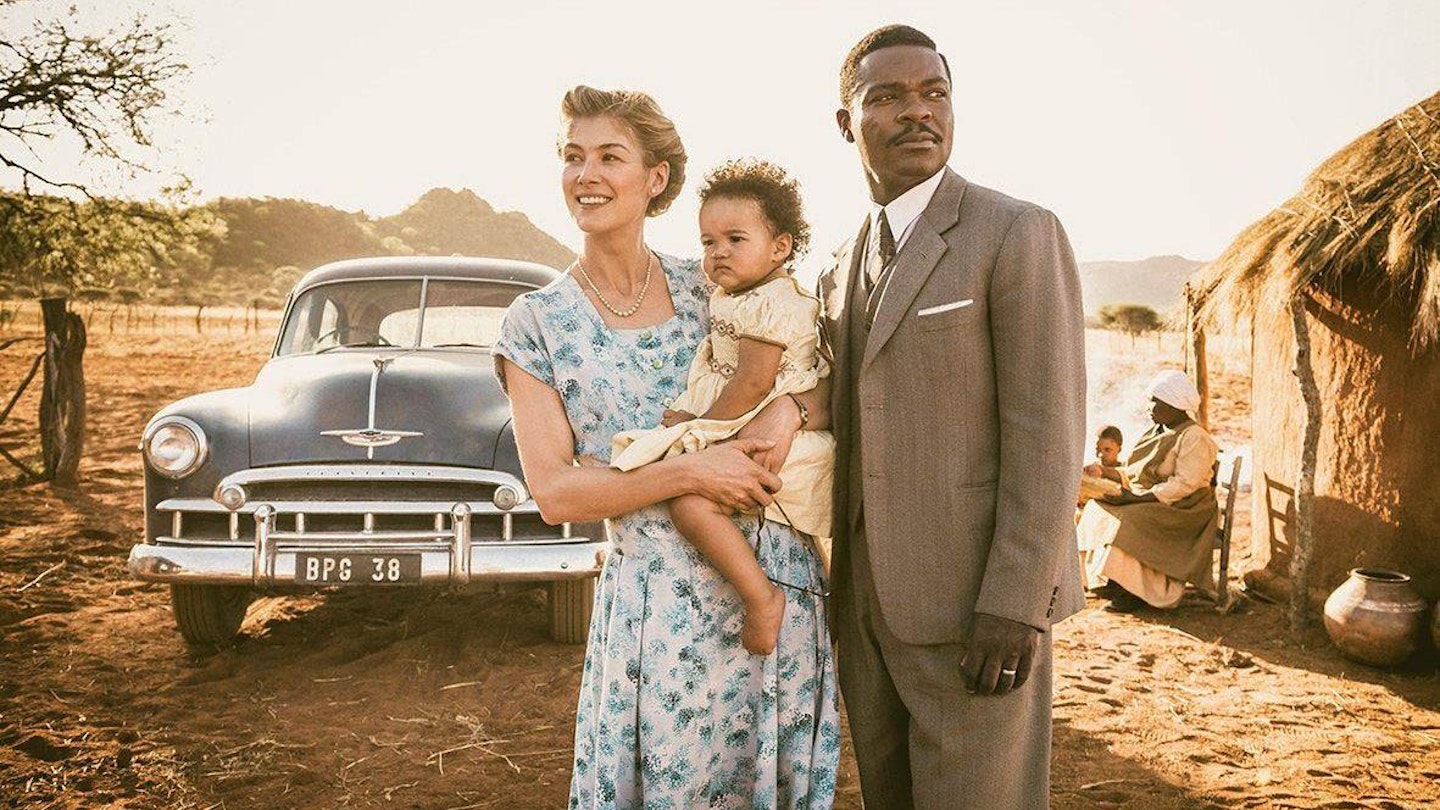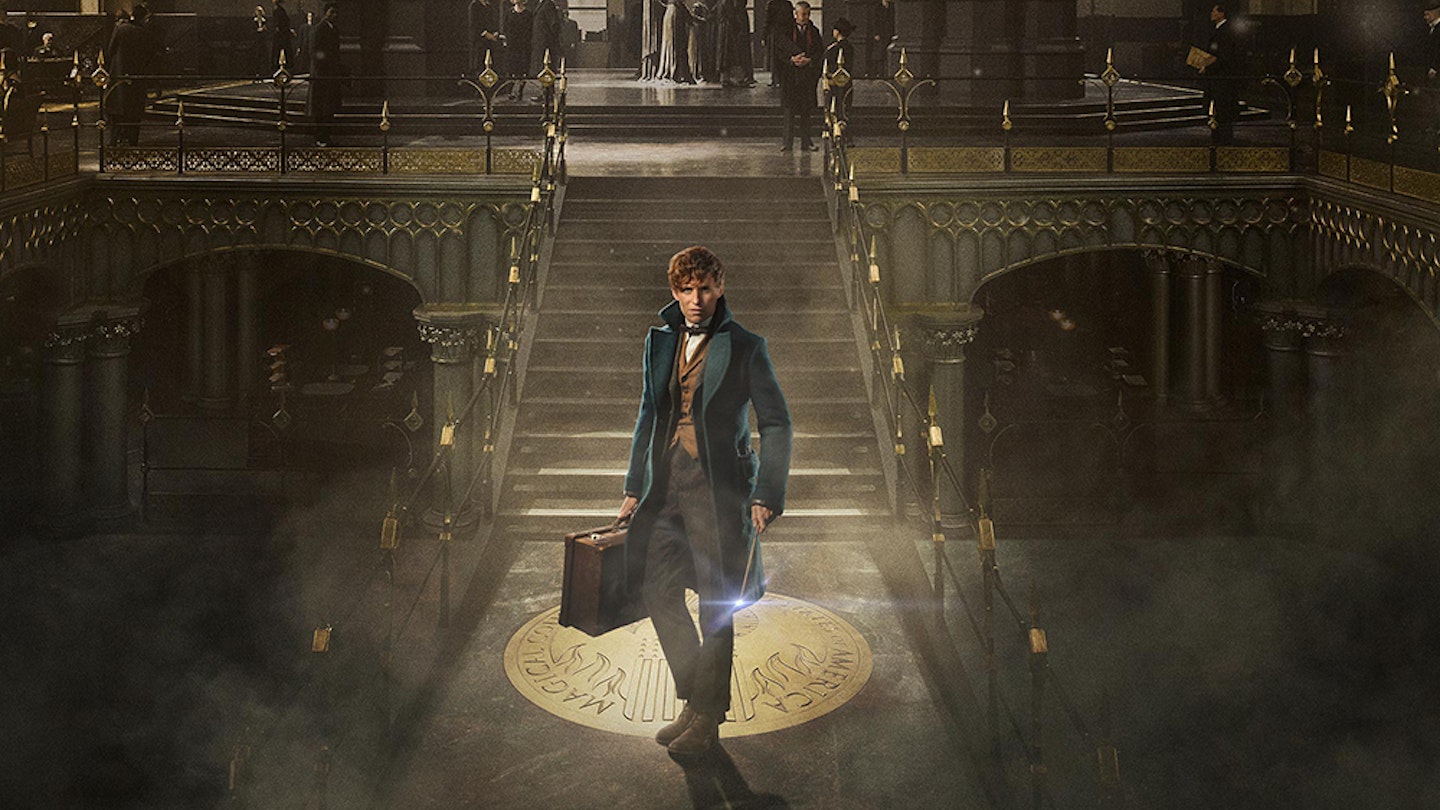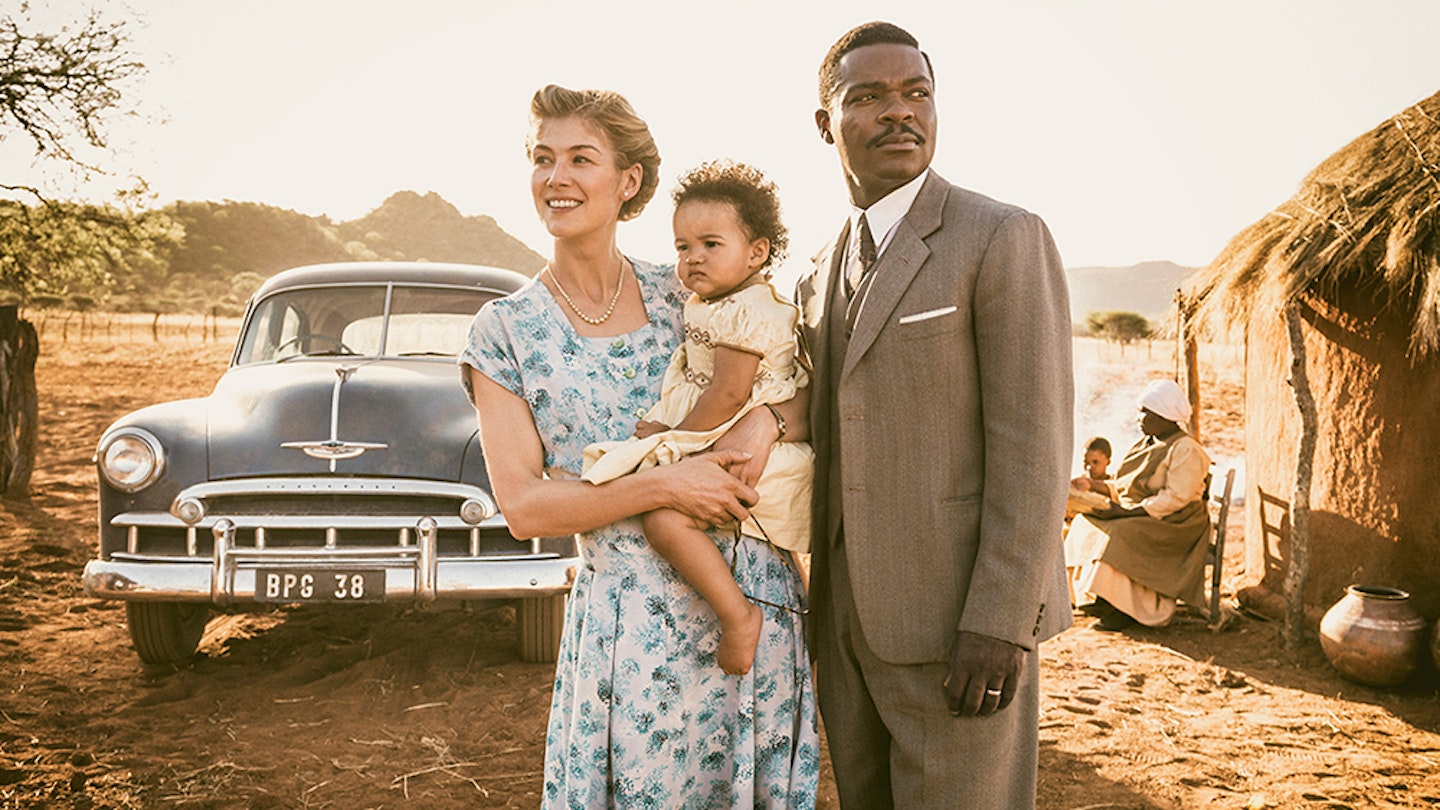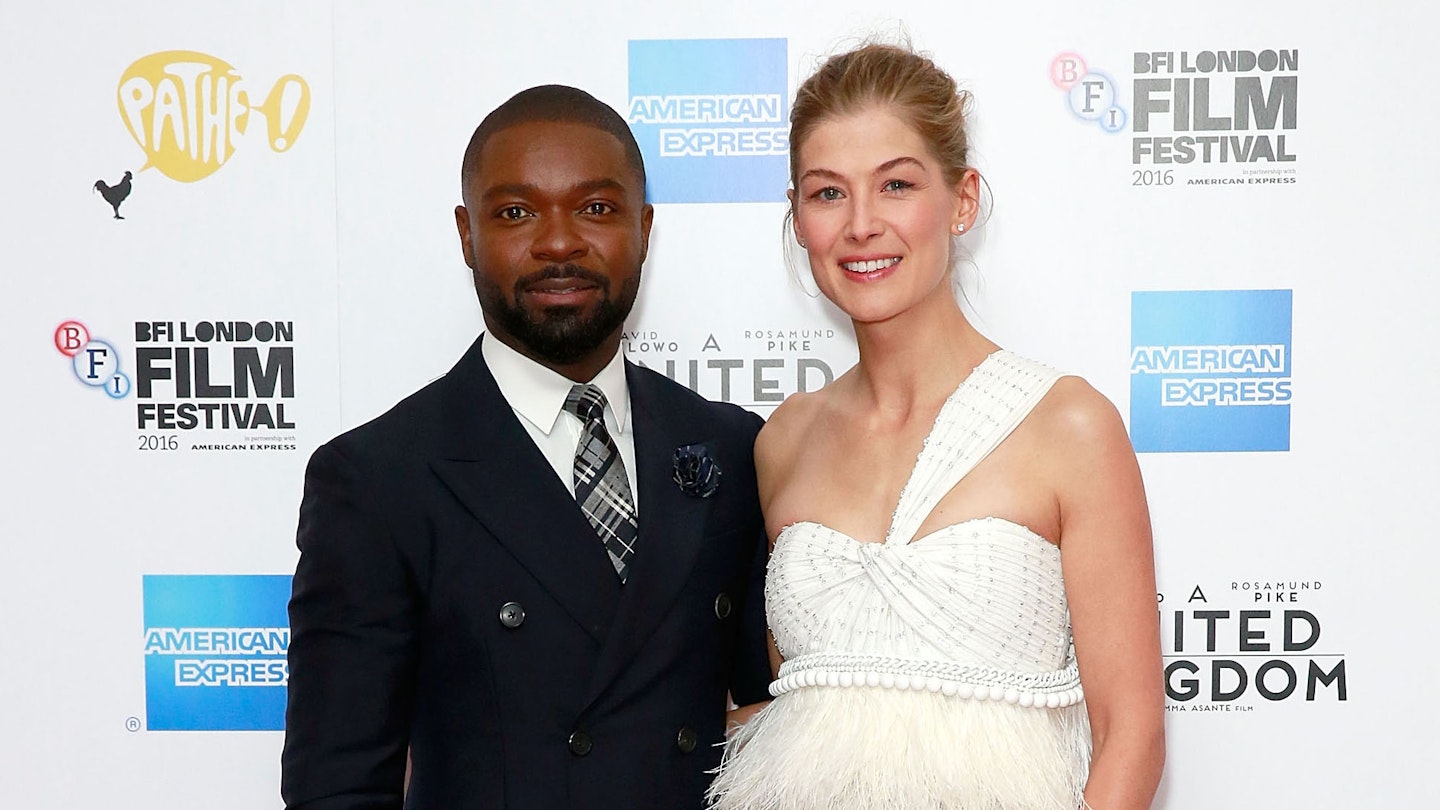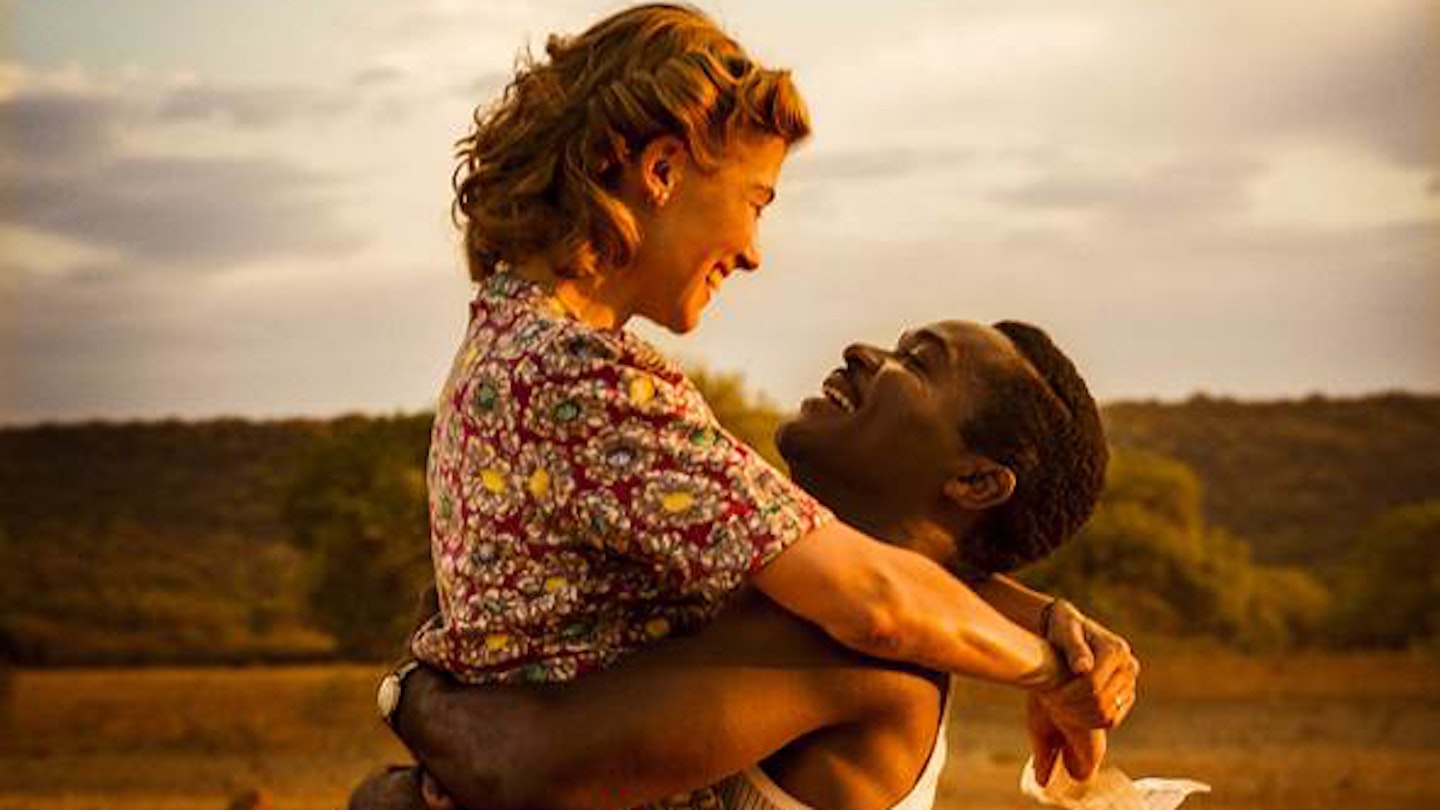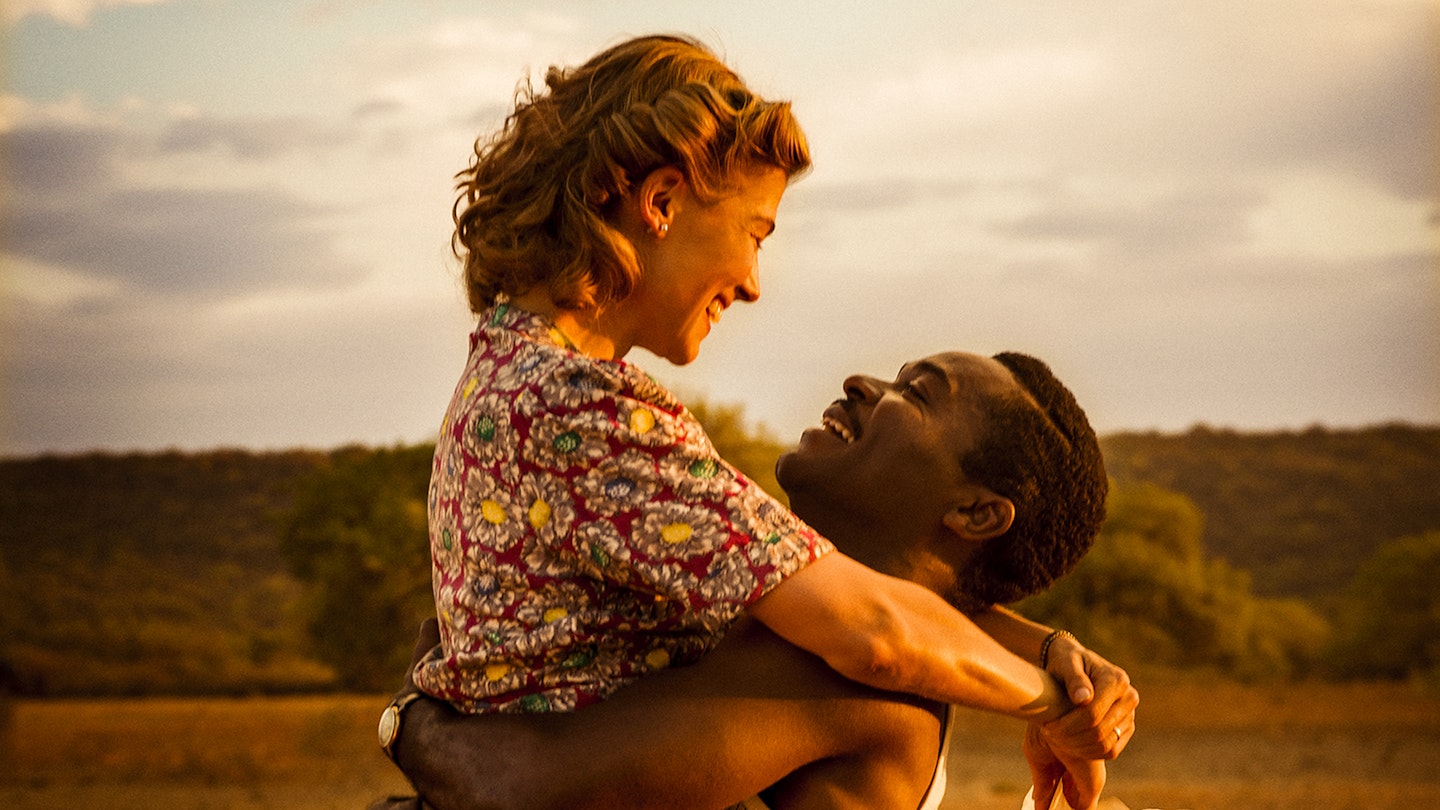Amma Asante’s last film, 2013’s Belle, emphasised the link between the personal and political in the story of a slave’s daughter who helped end slavery. A United Kingdom manages a similar feat, offering a touching romance then hitting the audience with the dehumanising evils of colonialism. Both stories would seem implausible if they weren’t fact-based but, if anything, this one struggles to cram in the dramatic ups and downs of its central romance.
Asante still finds personal moments amid the political storms.
We open in London in the late 1940s, with Ruth Williams (Rosamund Pike) dragged to a missionary dance by her sister Muriel (Laura Carmichael). There, she is instantly struck by Seretse Khama (David Oyelowo), the future leader of Bechuanaland (modern-day Botswana), who’s holding forth on colonial politics. They dance together — and then, daringly, keep meeting. Soon, with his return to Africa imminent, he proposes and she accepts. It’s a dizzying, quickly sketched courtship, but Asante establishes the pair’s commitment and courage.
The obstacles to the match soon mount. Her father (Nicholas Lyndhurst) disowns her, and neighbours assault the couple in the street. But far more dangerous are the colonial authorities, led by Alistair Canning (Jack Davenport, sneering for England), terrified of offending apartheid South Africa by installing a mixed-race couple in power on their border. They try to break the match, or drive the couple into exile, or persuade Seretse’s equally disapproving uncle and regent Tshekedi Khama (Vusi Kunene) into a conflict that would justify direct rule from London.
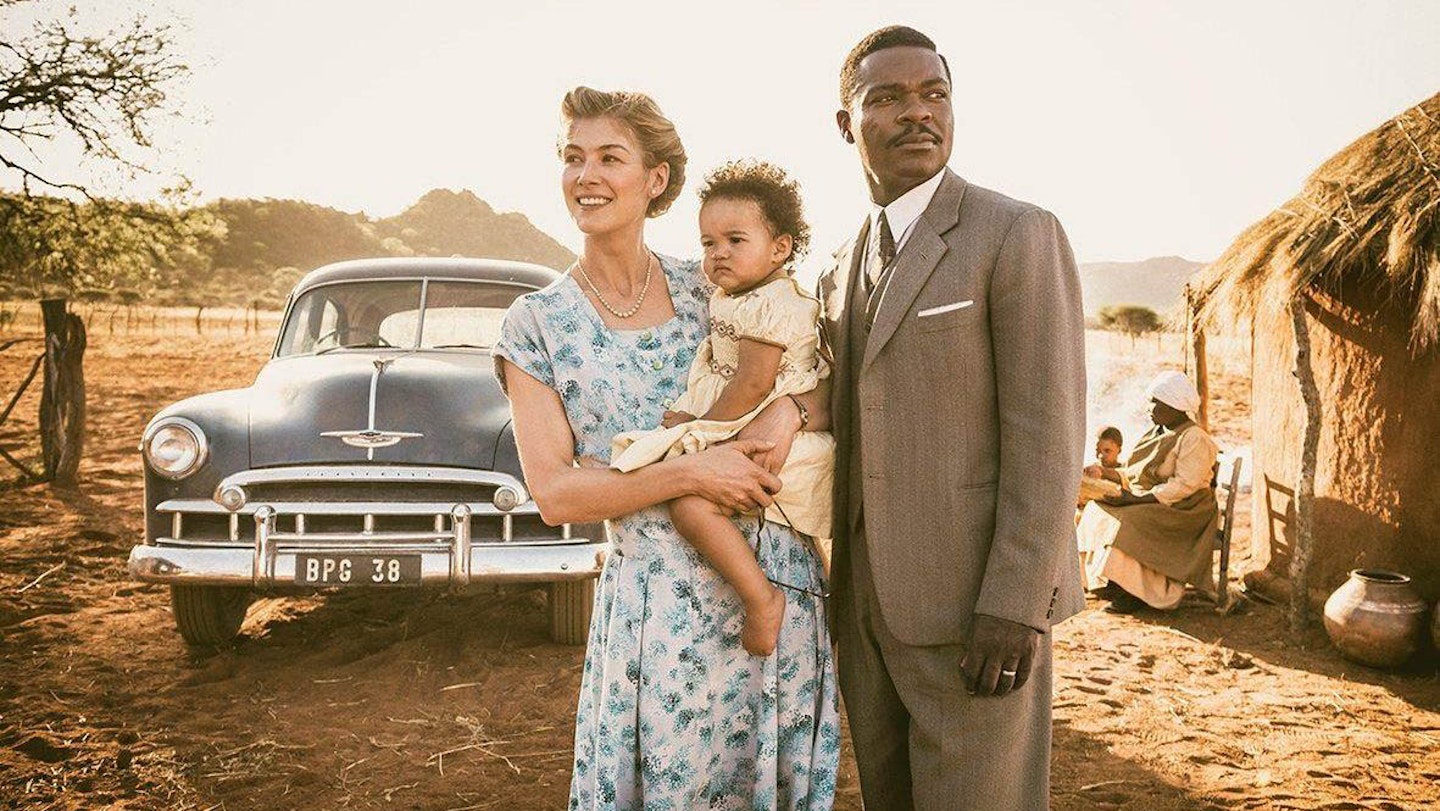
Through illness, exile and unrelenting pressure, the couple’s commitment to each other is the only constant — and there the performances of Pike and Oyelowo, devoted and utterly stoic, are essential as the focus shifts, with just a slight wobble, from love story to geopolitical scrap.
As an example of uncommon love, it’s quietly inspiring.
Asante still finds personal moments amid the political storms and emphasises Ruth’s less headline-grabbing struggles in her new home. She sensitively sketches the understandable reservations of African women faced with this white intruder, who self-consciously practises waving like the Queen as she tries to figure out her role, and makes a character of the kgotlas, the popular gatherings to affirm or reject Seretse’s place as chief of his people. And she has empathy for the colonial administrators too: however unjust their actions, they’re convinced of their own righteousness. But if there’s a criticism to be made of the film’s second half, it’s in the (sadly factual) distance between the leads.
The film ends, if anything, a touch too early, before Botswanan independence is secured and before the couple really became a shining contrast to the pariah state of apartheid South Africa. But as an example of uncommon love and humanity defeating one part of a grotesque system, it’s quietly inspiring. There may be a hint of rose-tinting to the film’s depiction of Ruth and Seretse, but then, that could just be the African sun shining on a story about hope.
